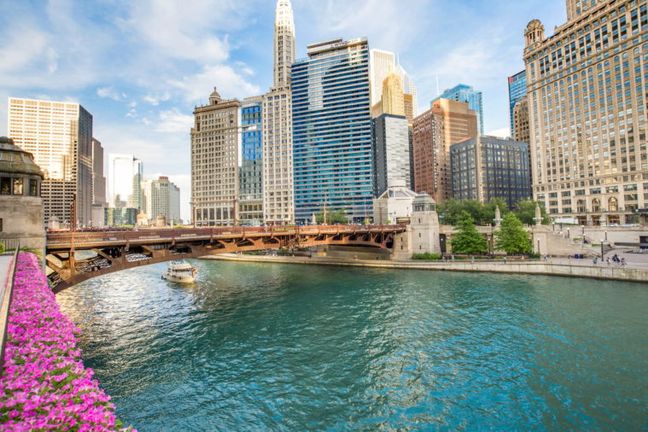Background: House Bill 3360
On January 13, 2021, with the backing and encouragement of the Illinois Trial Lawyers Association, the Illinois General Assembly passed House Bill 3360, which amends section 2-1303 of the Illinois Code of Civil Procedure. This bill would amend the state’s prejudgment interest statute to allow recovery of nine percent interest per year on all personal injury and wrongful death claims decided in favor of plaintiff. If passed into law, plaintiffs in personal injury and wrongful death cases will recover prejudgment interest at the rate of nine percent per year on all damages awarded in a trial.
Under the new bill, interest will begin to accrue as soon as defendant has “notice” of the injury or receives written notice of a potential claim. Plaintiffs seeking damages for injuries occurring before the law takes effect, including those with currently pending lawsuits, will be eligible to collect prejudgment interest – but such interest will only accrue as of the law’s effective date. Additionally, cases settled prior to verdict would not be subject to an award of pre-judgement interest. The governor now has the opportunity to either sign or veto the bill. If he does neither, the bill will automatically become law on March 14, 2021.
Analysis
The ramifications of this bill, if passed into law, are patently unfair to defendants who have no control over when (within the statute of limitations) the case is filed and subsequently tried. Take, for example, a plaintiff subject to the new law who is injured in a motor vehicle accident on February 18, 2021, but waits until February 17, 2023 to file her lawsuit against defendant driver. After filing the lawsuit and going through all discovery, the case is finally tried to plaintiff’s verdict, and a judgment on the verdict is entered in September of 2026. This means plaintiff would be entitled to prejudgment interest dating back to February of 2021. In Illinois, plaintiff generally has the right to voluntarily dismiss her action, and re-file it within one year of the dismissal. Now, take the same example and assume plaintiff decides to non-suit her case the day before trial starts in September of 2026. She waits the full year and re-files the case in September of 2027. The court allows some new discovery to occur, and the case is tried to plaintiff’s verdict in February of 2029. Under this (not so unrealistic) hypothetical, defendant would be responsible for eight years of pre-judgment interest. Further, in motor vehicle cases for example, injured minors can wait up to two years from the time of their 18th birthday to file suit (other causes of action such as medical malpractice have different time limitations for minors). Imagine a 13-year-old child injured in motor vehicle accident who then has seven years to file her lawsuit. Add to the time, an additional four years after filing suit to reach a verdict. Under this scenario, defendant could be responsible for 11 years of pre-judgment interest. Short of settling the case prior to verdict, defendant has no way of stemming the accrual of prejudgment interest.
To really drive home the point, consider a $2 million claim is filed two years after the date of injury and takes three years to reach a verdict—the claim would result in over one million dollars of pre-judgment interest, for which both a primary and excess insurer would generally share indemnity responsibility. This legislation theoretically creates more pressure for excess carriers to monitor underlying negotiations and incentivize primary carriers to settle—not only to cut off excess indemnity, but also the significant interest which would also flow to the portion of a judgment for which an excess carrier would be responsible. Understandably, insurance carriers may feel more pressure to settle those higher exposure cases sooner rather than later. Waiting closer to trial may embolden plaintiffs to go through with the trial, or hold firm on their elevated settlement demands, knowing carriers may feel pressure to settle the case rather than risk an adverse verdict resulting in significant prejudgment interest payments.
Takeaway
Defense counsel must remain keenly aware any request by plaintiff’s counsel to delay discovery and/or trial could result in increased pre-judgment interest. Before agreeing to any such delay, defense counsel should attempt to enter into a stipulation that carves out the time created by the delay from any future calculation of a pre-judgment interest award amount.
The same rationale applies when responding to plaintiff’s motion to voluntarily dismiss their case. Commonly, defense counsel will want language in the dismissal order requiring plaintiff pay the defense costs (usually limited to the appearance fee) upon the refiling of the case. Now, defense counsel will also want to seek language in the dismissal order tolling the accrual of time from the voluntary dismissal up to the refiling of the case so as not to be included in any future calculation of prejudgment interest.

 Author: Mark Shanberg
Author: Mark Shanberg
 Cannabis Workers Allege Quota to Trim 4 Pounds a Day Violates the California Labor Code
Cannabis Workers Allege Quota to Trim 4 Pounds a Day Violates the California Labor Code
 The Ninth Circuit Reminds Us: Every Word Matters
The Ninth Circuit Reminds Us: Every Word Matters
 NO WAY, PRO SE! The Consequences of Abusing the Judicial System as a Pro Se Litigant in Colorado
NO WAY, PRO SE! The Consequences of Abusing the Judicial System as a Pro Se Litigant in Colorado
 Victim of Financial Mismanagement or Unlawful Retaliation? New Jersey City University Program Founder Claims School Retaliated After Reporting Alleged Sexual Harassment
Victim of Financial Mismanagement or Unlawful Retaliation? New Jersey City University Program Founder Claims School Retaliated After Reporting Alleged Sexual Harassment
 “Real Housewives” Gets a Reality Check
“Real Housewives” Gets a Reality Check
 Missing a Chapter: Insufficiency of Expert Deposition Testimony in Medical Malpractice Litigation
Missing a Chapter: Insufficiency of Expert Deposition Testimony in Medical Malpractice Litigation
 Crash Course: Why Summary Judgment Misses the Mark in Illinois Multi-Cause Limousine Crash Collision
Crash Course: Why Summary Judgment Misses the Mark in Illinois Multi-Cause Limousine Crash Collision
 Bitter Truths: Lead, Cadmium, and Defective Pleadings in California Chocolate Class Action
Bitter Truths: Lead, Cadmium, and Defective Pleadings in California Chocolate Class Action
 The Law of Unintended Consequences: Including Insurance Brokers in Litigation Strategy Communication May Waive the Attorney-Client Privilege
The Law of Unintended Consequences: Including Insurance Brokers in Litigation Strategy Communication May Waive the Attorney-Client Privilege
 Update: Pay Me Now, or Potentially Pay Me More Later – Prejudgment Interest Statute Held Constitutional
Update: Pay Me Now, or Potentially Pay Me More Later – Prejudgment Interest Statute Held Constitutional
 Good Faith Under the Contribution Act – Not Always Good for the Defense
Good Faith Under the Contribution Act – Not Always Good for the Defense
 Illinois Biometric Privacy Law Does Not Require Showing of Actual Injury
Illinois Biometric Privacy Law Does Not Require Showing of Actual Injury
 Special Interrogatories in Illinois State Court are Now Weighted in Favor of Plaintiffs
Special Interrogatories in Illinois State Court are Now Weighted in Favor of Plaintiffs
 The Discovery and Use of Social Media Evidence in Illinois
The Discovery and Use of Social Media Evidence in Illinois